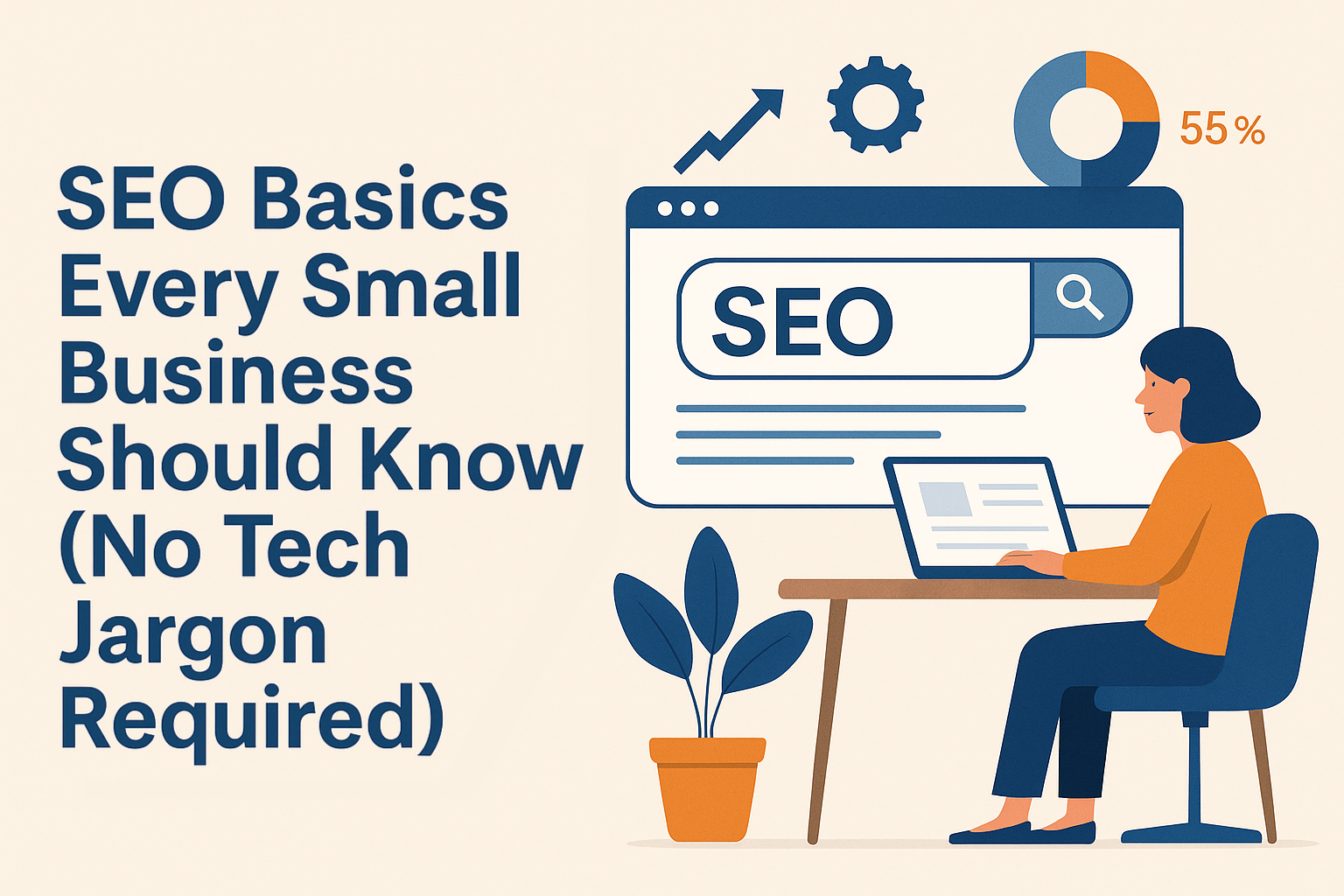
Search engine optimization (SEO) might sound complicated—but it’s really just about making sure your business shows up when someone searches for what you offer. And for small businesses, even simple SEO improvements can lead to major visibility gains.
You don’t need to be a tech expert or keyword wizard to benefit from SEO. Here’s a no-fluff, beginner-friendly breakdown of what SEO is, why it matters, and what you can do to start improving your search rankings—without any overwhelming jargon.
What Is SEO, Really?
At its core, SEO is the process of optimizing your website and content so it appears in relevant Google searches.
When someone types “dog groomer in Richmond” or “best accountant near me,” Google uses dozens of factors to decide which websites to show first. SEO is how you position your business to be one of them.
Why SEO Matters for Small Businesses
- Increased visibility: The higher you rank, the more likely people are to click.
- Organic traffic: Unlike ads, you don’t pay for clicks from search results.
- Local relevance: Local SEO helps customers find you when they’re nearby and ready to buy.
- Long-term value: Good SEO work pays off over time.
5 Simple SEO Basics to Start With
1. Make Sure Your Website Loads Fast
Google rewards sites that are speedy. Compress large images, avoid bloated plugins, and test your site with tools like Google PageSpeed Insights.
2. Use Keywords Naturally
Think about what your ideal client might type into Google, and use those phrases in your website copy, page titles, and blog posts.
Examples:
- “New Kent event planner”
- “custom home builder in VA”
- “dog-friendly coffee shop in Mechanicsville”
Don’t stuff keywords—write for humans first, search engines second.
3. Create (or Update) Your Google Business Profile
If you serve local clients, your Google Business Profile is essential. Make sure your hours, services, photos, and contact info are all up to date. Encourage happy customers to leave reviews!
4. Optimize Each Page With a Unique Title + Description
Each page on your site should have a clear title tag and meta description that includes your target keywords. These are what show up in Google’s search results—and your first impression matters.
5. Blog (or Add New Content) Regularly
Google loves fresh content. Regularly updating your site, whether it’s adding a blog post, case study, or new service section, signals that your site is active and relevant.
What About SEO Tools?
If you use WordPress, plugins like Rank Math or Yoast SEO can help guide your on-page optimization. Not on WordPress? No problem—you can still manually add page titles and keep your copy keyword-friendly.
Final Thought
You don’t need a full-blown SEO agency to start ranking better. A few foundational updates—done consistently—can increase your online visibility and help more people find your business.
👉 Want help with basic SEO setup or local search visibility? Reach out to Chicklet Marketing—we’ll walk you through it without the jargon.
Do you have questions on how to best reach your target audience? Do you have a marketing budget but aren’t sure how to allocate those funds for an optimal ROI? Are you in need of an updated website? If you have any questions or need assistance with your marketing efforts, we want to hear from you! Schedule your FREE Consultation to find out how we may be able to help take your business to the next level.
“The secret to getting ahead is getting started.” – Mark Twain




